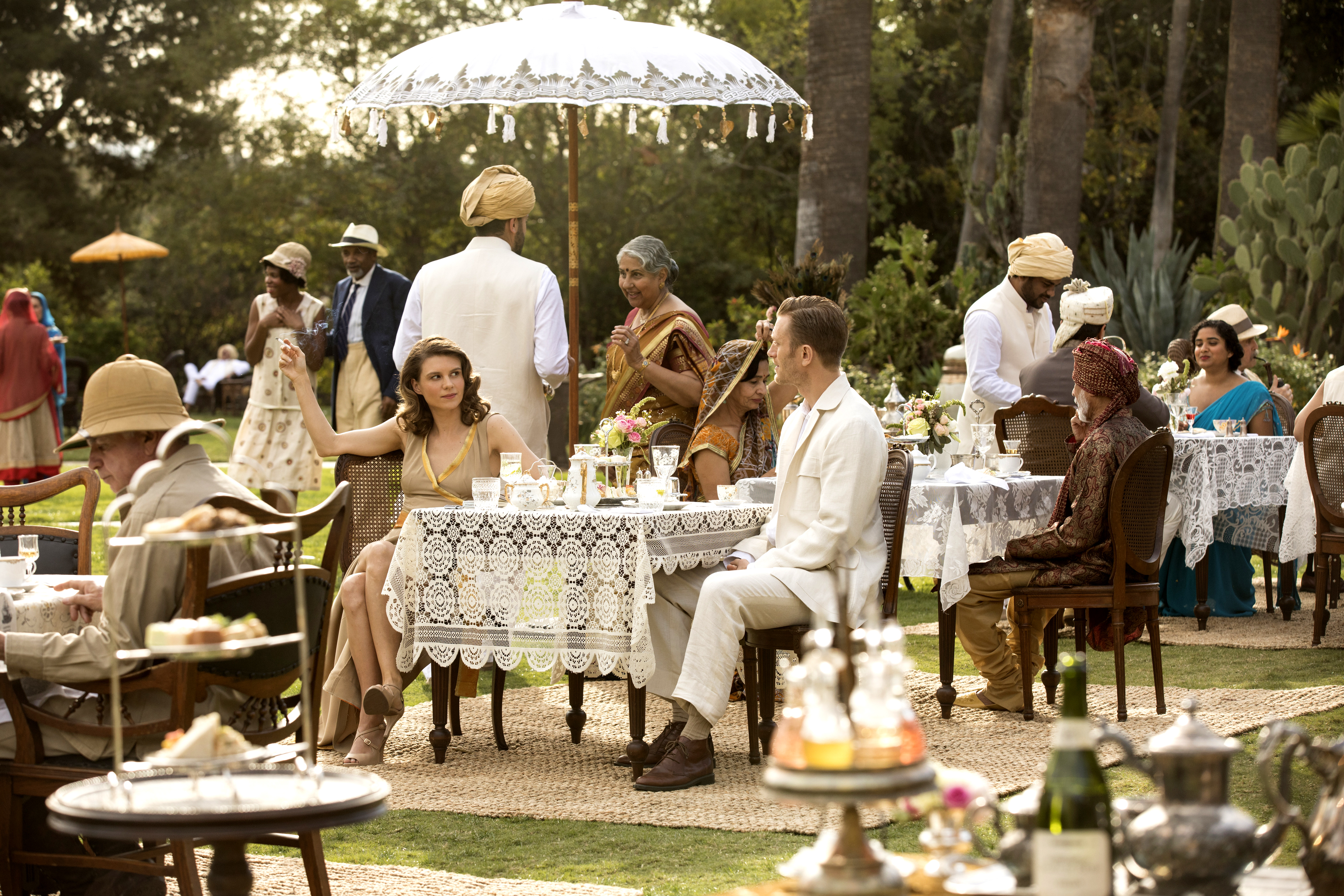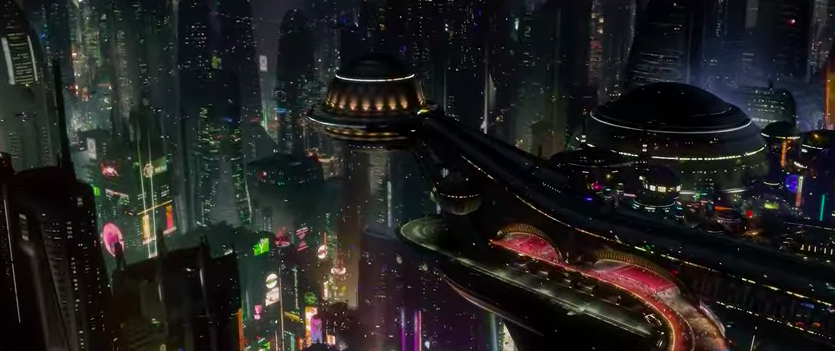Westworld never should have left Westworld
Go back! And stay there!


A free daily email with the biggest news stories of the day – and the best features from TheWeek.com
You are now subscribed
Your newsletter sign-up was successful
Westworld has finally taken us away from Westworld. The departure has thus far been hugely disappointing.
Westworld's strengths have always been rooted in its meta self-interrogations: The guests might be the ones spending their vacations sadistically murdering the robotic hosts at this full-immersion Wild West theme park, but we're the ones watching it for "entertainment." Another (subtler) parallel came when viewers of season 1 thought about the world beyond Westworld. Just like the hosts, we had no idea what the outside world looked like, even as Maeve and her crew desperately sought to escape. But to where — and to what?
Season 2 has at last showed us what we were missing. Sadly, it isn't much.
The Week
Escape your echo chamber. Get the facts behind the news, plus analysis from multiple perspectives.

Sign up for The Week's Free Newsletters
From our morning news briefing to a weekly Good News Newsletter, get the best of The Week delivered directly to your inbox.
From our morning news briefing to a weekly Good News Newsletter, get the best of The Week delivered directly to your inbox.
The second episode of season 2 took us back in time to the days before Westworld was established; we see Arnold and Dolores in a high rise looking out toward a harbor, before they are interrupted by Ford. The "splendor" of city lights is certainly jarring after having seen exclusively dusty mesas and sterile labs for the 11 episodes prior. But even when Arnold and Dolores take a walk downtown, Westworld's version of the future looks like it does in any other science-fiction film: Toronto (with fewer holograms):

Chinese characters in the background of one scene paired with that harbor view means the futuristic city in Westworld is most likely Hong Kong, which aligns with what we know of the park's location: somewhere off the coast of China. But after spending a season in Westworld waiting for this, it's hard to get as excited as Dolores does about the view.
In the lead-up to this reveal, there were abundant, exciting theories about why we'd never seen the outside world, including that the Westworld park was actually built underground because the surface of the Earth was irradiated or otherwise rendered uninhabitable. Reddit sleuths managed to land on the year 2052 for Westworld's present day timeline — a near enough future to justify how recognizable it is, perhaps, although we do know their world's technology has advanced far beyond ours, and very rapidly.
Westworld guests do marvel at how real the hosts look, and even Logan is stunned to have been fooled by the technology during his private demonstration. Yet surely households here contain technology a little more advanced than a Roomba, even if the hosts are a remarkable product. Still, in this first glimpse of a world we've spent so many episodes seeking, there aren't even holograms or delivery drones or flying Ubers — just an anonymous skyline.
A free daily email with the biggest news stories of the day – and the best features from TheWeek.com
In the most recent departure from Westworld, in episode three, we visited park six, the Raj, which is apparently a kind of Orientalist fantasyland, plucked out of the days of the British rule of India. From its website we learn that this park is for guests whose idea of a $40,000-a-day adventure is spa treatments, Darjeeling tea, and catered hunting trips of extinct animals like tigers (oh, the irony of hunting mammals into extinction only to resurrect them as robots to shoot again). The guests we see there mention having to press to the edges of the park to find their thrills; Westworld this is not.
Unfortunately, the Raj doesn't appear to be much more than peacocks and hookah and "Seven Nation Army" on the sitar. The clichés are necessary to a degree: Westworld itself is certainly nothing like the real Wild West, and the Raj is similarly a romanticized idea of a period for the guests. Still, their blissful, or willing, naïveté is complicated by the fact that the only two characters with anything meaningful to say in this segment are white.
The increasing importance of Ghost Nation back in the original park at least indicates that the writers of the show are going somewhere with Westworld. I'm concerned, though, that what Westworld has to say about colonialism and the troubles with historic nostalgia is not as considered as what it has to say about the entertainment industry and what we're willing to watch for fun.
Showrunner Jonathan Nolan has justified the frustrating propulsion away from Westworld by saying that while "the first season was a journey inward, this is a journey outward." But if the outside world is this two-dimensional, then Westworld never should have left Westworld at all. Certainly there are enough unanswered questions left in the park that still need to be answered. That's not to mention the disservice it is to Westworld itself — a wonderfully constructed place with so many corners left to explore (let's see that Klondike narrative, please!).
Perhaps worst of all, that excruciating, claustrophobic tension constructed over the course of the first season has been broken. The urgency for Maeve and Dolores to leave the park is lessened; we now know what's out there, and we have to patiently wait for them to finally (fiiiiiinally) catch up. While we once longed with the characters for an escape into unknown lands and to an uncertain freedom, the show has shifted to make us a passive audience, rather than an involved and curious participant.
Westworld loves to play with clichés, so it is well within the realm of possibility that this will all be neatly sorted out. There are already hints that things are not as they seem. Dolores, for example, is convinced she's been outside the park before, as we saw in the flashback, but there is always the significant possibility that was just a programmed memory.
As Westworld has expanded its horizon, it has also wound farther and farther from what made it worth watching in the first place. Hopefully Shogun World, when we get there at last, will hold a few more surprises in store.
Jeva Lange was the executive editor at TheWeek.com. She formerly served as The Week's deputy editor and culture critic. She is also a contributor to Screen Slate, and her writing has appeared in The New York Daily News, The Awl, Vice, and Gothamist, among other publications. Jeva lives in New York City. Follow her on Twitter.
-
 6 exquisite homes with vast acreage
6 exquisite homes with vast acreageFeature Featuring an off-the-grid contemporary home in New Mexico and lakefront farmhouse in Massachusetts
-
 Film reviews: ‘Wuthering Heights,’ ‘Good Luck, Have Fun, Don’t Die,’ and ‘Sirat’
Film reviews: ‘Wuthering Heights,’ ‘Good Luck, Have Fun, Don’t Die,’ and ‘Sirat’Feature An inconvenient love torments a would-be couple, a gonzo time traveler seeks to save humanity from AI, and a father’s desperate search goes deeply sideways
-
 Political cartoons for February 16
Political cartoons for February 16Cartoons Monday’s political cartoons include President's Day, a valentine from the Epstein files, and more
